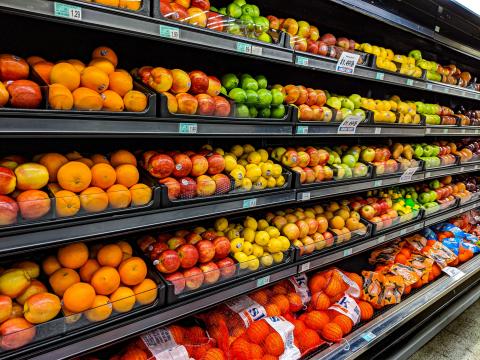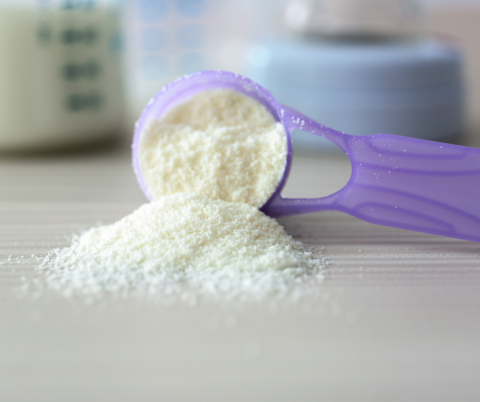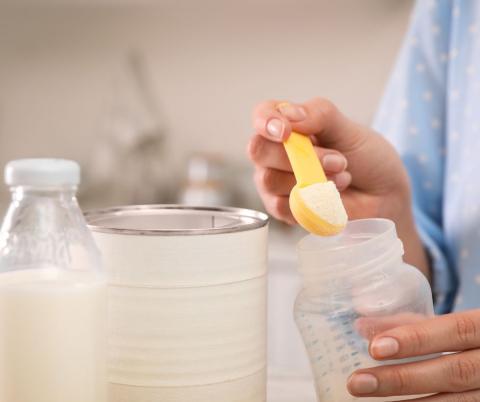First Infant Formula Milk Update: June 2025
First infant formula milk prices remain high ahead of the Government’s delayed response to the CMA’s recommendations to improve the formula market for parents
Our latest update on first infant formula prices finds that prices remain high in spite of the Competition Market Authority (CMA) recently recommending a suite of measures to support families with the choices available and the price they pay for formula.
The most expensive brand is still more than twice the price of the cheapest first infant formula available, despite both being nutritionally adequate for an infant.
At The Food Foundation, we track the online prices of a standard 800g tin of the major first infant formula milk brands across nine retailers every month(1).
The price of formula really matters for those families who are unable to or choose not to breastfeed; for them, formula is an essential, non-substitutable item for the first six months of a baby’s life.
Yet the disproportionate price rises of formula during the cost of living crisis, and lack of competition on price, means first infant formula has become unaffordable for many families.
How have prices changed since October 2024?
Since our last update in October 2024 we’ve seen a few positive shifts in the price of first infant formula.
The price of Cow and Gate and Aptamil 1 was reduced across three retailers, Tescos, Sainsbury’s and ASDA, in April to May 2025.
And in a welcome move Aldi pledged to freeze the price of its Mamia First Infant Formula for the remainder of 2025 earlier this month (June).
The price of SMA Little Steps – one of the most affordable brands across all retailers – has undergone both reductions and increases.
Positively in November 2024, Ocado reduced the price of SMA Little Steps from £9.75 to £7.95, bringing the price in line with other major retailers at the time.
However, in May to June 2025 both ASDA and Morrison’s increased the price of Little Steps from £7.95 to £8.40 and £8.43 respectively.
This is concerning as Little Steps is one of only four first infant formula brands available at a price point that is affordable within the amount families eligible for the Healthy Start scheme receive each week (£8.50 for children aged >1), and means Morrisons and ASDA are now the two most expensive places to buy Little Steps.
All seven other major retailers sell the Little Steps 800g product for £7.95.
In April 2025, Iceland increased the price of Kendamil First Infant Formula by 75p and Aptamil 1 by 80p from March to April 2025, despite Iceland having previously led the market in bringing down formula prices in August 2023 following scrutiny of the formula market by the CMA and media, which at the time led to other positive price reductions across other retailers.
Overall, prices have remained high and largely static, with the most expensive product (Aptamil 1 as sold at Co-op), still costing twice as much (£14.00) as the cheapest products, Aldi’s Mamia and Lidl’s Lupilu, which sell for just £6.99(2).
This is despite all first formula sold in the UK having to meet standard nutritional requirements that provide sufficient nutrition for an infant.
Table 1: First Infant Milk Formula 800g tin prices, June 2025 Ranking cheapest (green) and most expensive (orange) retailers for each brand, and price changes since October 2024 (in brackets and coloured text)
Including the own-brand products at Lidl and Aldi, there are now four first infant formula products in a standard 800g affordable within the weekly £8.50 Healthy Start scheme payment provided to eligible families with a child under one(3).
Whilst this is an improvement since our last update in October 2024, two of these products are own-brand and therefore only available two retailers, which will not be accessible locally to everyone.
We need to see affordable formula products across the retail sector to ensure they are widely available and accessible.
While this analysis focuses on retailers, action is also required from manufacturers on pricing with three manufacturers (Danone, Kendal and Nestle) controlling 90% of the UK market with a significant influence on the prices that retailers subsequently set and pass onto consumers.
Many of the price reductions that we have seen in the past year have been driven by changes to Recommended Retail Price (RRP)(4) or retailers deciding to sell products at cost price or below the RRP.
For example, following Iceland’s decision in August 2023 to cut the cost of all formula to cost price, other retailers followed suit, and when Danone cut the price of their Aptamil brand of formula by 7% prices came down almost immediately across all eight retailers stocking the product.
While manufacturers have previously pointed to inflationary pressures and higher input costs as key factors driving the 24% average price increase we saw between March 2021 and April 2023 on first infant formula, inflation has fallen rapidly since 2023, but despite this, prices remain high.
What’s next for the infant formula market?
In 2024, the CMA initiated an investigation into the infant formula market, following concerns about the lack of price competition between formula brands and the impact that this was having on the choice and price paid by families.
The CMA’s investigation found that a combination of unique features of the formula market – including the vulnerable circumstances in which parents are having to choose brands, unclear information and marketing tactics used by formula brands – has led to poor outcomes for parents in relation to the choice and the inflated prices they pay for formula.
The Food Foundation and others submitted evidence highlighting amongst other issues, the marketing tactics used by formula brands to secure brand loyalty and maintain high prices, despite all formula products being nutritionally adequate for an infant.
In February 2025, the CMA made a set of welcome recommendations aimed at enhancing protections against high formula prices and the inappropriate marketing of formula. These recommendations include:
- Strengthening the UK advertising and labelling rules, including prohibiting non-verifiable health claims and extending advertising restrictions to include follow-on formula and toddler/growing up milks.
- Removing the influence of formula brands in healthcare settings by ensuring there is clear information that all first infant formula products meet a baby’s nutritional needs regardless of brand or price; and introducing standardised formula labelling.
- Ensuring that retail settings clearly convey information on how all first infant formula meets a baby’s needs regardless of brand or price and separating first infant formula products from other formula on retail shelves.
- Monitoring and enforcing compliance with the regulations of marketing of formula milks.
The lack of change in formula prices since these recommendations, and indeed the increase in price in some products, indicates that government intervention is going to be required in order to create a meaningful shift in the formula market towards more affordable prices for families.
Our recommendations:
The Government response to these recommendations is now overdue. In the meantime, food insecurity rates remain high, with nearly one in five families with a child under four living in food insecurity, and there has been little change to formula prices.
It is encouraging to see that the Government have set out a continued commitment to Healthy Start in the Spending Review last week.
We are still awaiting for further details on this commitment. In the meantime, urgent steps are required to protect our youngest children.
The Food Foundation is calling on the Government to accept all 11 of the recommendations made by the CMA, which would be a significant step towards supporting families to make informed choices when buying formula and potentially reduce formula prices.
Alongside this pressure on the formula market, we’re calling on the Government to increase the value of the Healthy Start scheme weekly payments in line with inflation and ensure the value continues to be index-linked and expand eligibility so more families benefit from the support.





